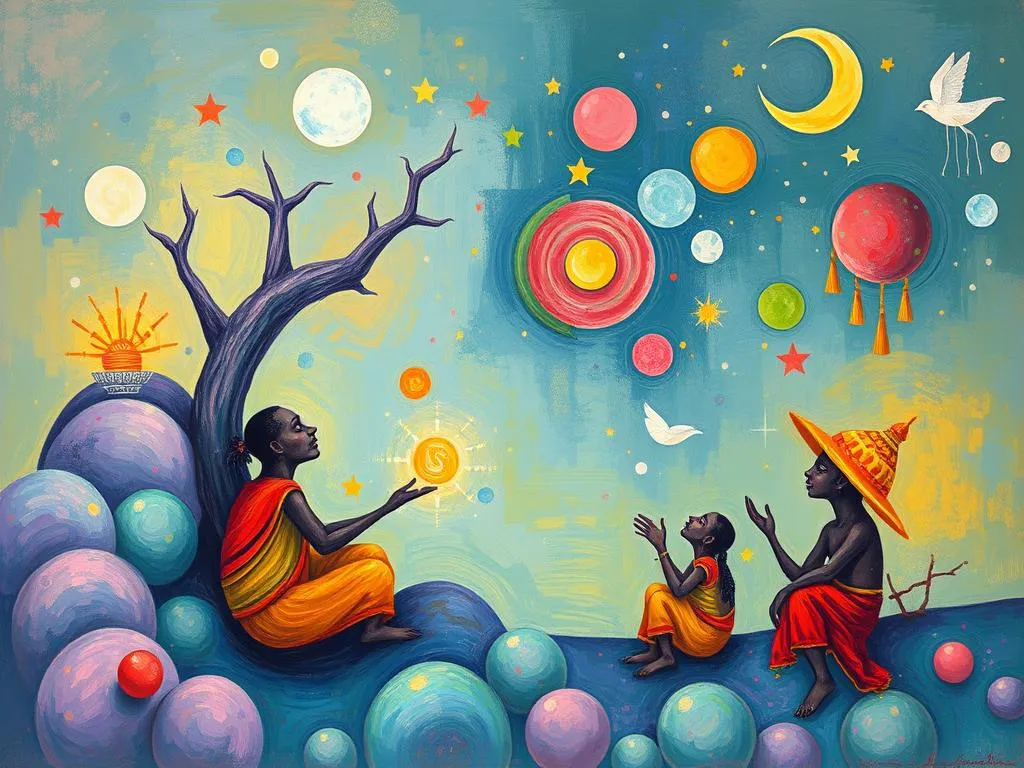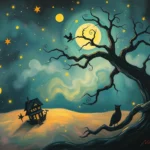
Introduction
Dreams have long fascinated humanity, serving as a window into our subconscious minds and providing a tapestry of thoughts, emotions, and experiences we may not fully understand. In the lush landscapes of South India, where vibrant cultures and rich traditions intertwine, dreams can take on unique and profound meanings. The relevance of dream interpretation in this context is not only to decode hidden messages but also to connect culturally significant symbols and experiences to our waking lives. For many, exploring the intricacies of their dreams can reveal insights into personal growth, emotional well-being, and spiritual journeys.
Understanding the symbolism inherent in dreams can lead to transformative realizations. Given South India’s diverse cultural heritage, dreams may draw upon local mythology, spiritual beliefs, and nature’s grandeur, making them particularly compelling. This article aims to uncover the layers of meaning behind dreams set against the backdrop of South India, encouraging readers to engage deeply with their own dream experiences.
Symbolism and Meaning
Dreams often feature powerful symbols, and in the context of South India, these symbols may be influenced by various factors including folklore, spirituality, and everyday life. Some common symbols and their meanings might include:
-
Temples: In many dreams, temples represent a search for spiritual knowledge or a desire for inner peace. The architecture of South Indian temples is intricate and significant; dreaming of them could indicate a longing for connection with divine guidance or a need to explore one’s spiritual beliefs.
-
Rice Fields: Given the agrarian culture of South India, dreams featuring rice fields may symbolize abundance and nourishment. They can reflect a sense of prosperity or the need to cultivate something meaningful in one’s life—be it a relationship, a career, or personal aspirations.
-
Monsoons: The arrival of monsoons is a significant event in South India, often symbolizing renewal and transformation. Dreams about rain might indicate a release of pent-up emotions, suggesting that the dreamer is ready to embrace change and growth.
-
Festivals: With numerous festivals celebrated throughout the region, such as Pongal or Onam, these joyous occasions can appear in dreams as symbols of celebration or a desire for connection with family and community. They may highlight the importance of social bonds and the joy of shared experiences.
-
Wildlife: South India is home to diverse flora and fauna, and animals appearing in dreams can carry various meanings. For example, elephants often symbolize strength and wisdom, while peacocks can represent beauty and grace. The interpretation can vary based on the specific animal and the dreamer’s personal associations with it.
Exploring these symbols invites readers to reflect personally on what they might signify in their own lives. Cultural context also plays a crucial role; for instance, a dream about a temple may resonate differently for someone raised in a religious household compared to someone who views such places through a secular lens. Engaging with these symbols can unlock deeper understandings of one’s self and circumstances.
Key Scenarios and Variations
Dreams can manifest in a myriad of scenarios, each lending a different nuance to their interpretation. Here we explore some variations and how they may alter the meaning of the dream.
-
Dreaming of a Journey to a Temple: If a dreamer finds themselves on a journey to a temple, it could symbolize a quest for self-discovery. The path taken, the obstacles encountered, and the emotions experienced during the journey can all reflect the dreamer’s current life challenges or aspirations.
-
Harvesting Rice: In a dream where the individual is involved in the process of harvesting rice, this may signify the culmination of hard work and the rewards that follow. It can also indicate a time of reflection on what one has achieved and the importance of gratitude for the resources available.
-
Experiencing a Monsoon: A dream in which one is caught in a monsoon can evoke feelings of chaos or overwhelm. However, it may also signify a necessary cleansing or release of emotions. The dreamer might need to consider what aspects of their life are in need of refreshment or renewal.
-
Celebrating a Festival: When dreaming about participating in a festival, the atmosphere of joy and camaraderie can represent a longing for connection. It may urge the dreamer to reach out to loved ones or embrace community ties that have been neglected.
-
Encountering Wildlife: Dreams featuring animals can vary widely based on the interaction. For instance, if a dreamer sees an elephant peacefully roaming, it might symbolize strength and support in their life. Conversely, a dream about a snake could invoke feelings of fear or caution, suggesting the need to confront hidden dangers or unresolved issues.
These scenarios remind us that the context of the dream can bring forth different emotional responses and insights. Reflecting on the details and feelings associated with each scenario can lead to a more comprehensive understanding of one’s subconscious thoughts and desires.
Real-Life Connections and Takeaways
Connecting dreams to real-life situations can be a powerful tool for self-reflection and personal growth. The messages embedded in these dreams often reflect our inner thoughts, fears, and desires. Here are some practical steps to help you relate your dreams to your waking life:
-
Keep a Dream Journal: Writing down your dreams as soon as you wake up allows you to capture the nuances and feelings associated with them. Over time, patterns may emerge, revealing recurring themes that warrant exploration.
-
Reflect on Personal Symbols: Consider the symbols that appear in your dreams and how they relate to your experiences and beliefs. For instance, if you dream of a rice field, think about what abundance means to you—are there areas in your life where you feel fulfilled, or are there aspirations you wish to cultivate?
-
Identify Emotions: Pay attention to the emotions experienced in dreams. Feelings of joy, fear, or anxiety can provide clues to your current emotional state. If a dream about a festival evokes happiness, it might indicate a need for more social interaction in your life. Conversely, anxiety in a chaotic dream could suggest unresolved issues that require attention.
-
Explore Cultural Context: Reflect on how your cultural background influences your dreams. South Indian culture is rich with stories, mythologies, and traditions that may seep into your subconscious. Understanding these influences can deepen your connection to the dream’s meaning.
-
Engage in Creative Expression: Sometimes, expressing the emotions and themes from your dreams through art, writing, or music can facilitate deeper understanding. This creative outlet can serve as a bridge between your dreams and waking life, allowing you to process your feelings more fully.
Dreams are not just fleeting images; they are powerful tools for understanding ourselves and the world around us. By engaging with the symbolism and themes that arise in our dreams, we can gain valuable insights that resonate with our real-life experiences. The rich cultural backdrop of South India offers a unique lens through which to view these dreams, inviting a deeper exploration of the messages they convey.
In conclusion, as you navigate your dream landscapes, take the time to reflect on the symbols and scenarios that emerge. The hidden messages within your dreams can lead to profound realizations about your life, aspirations, and connections to the world around you. Embrace this journey of self-discovery, and let each dream serve as a guide toward a more fulfilled and aware existence.







